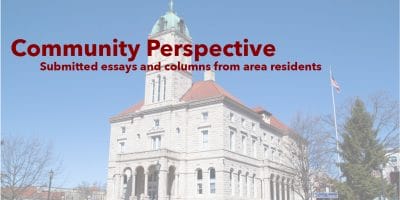
A contributed perspectives piece by the Climate Action Alliance of the Valley (CAAV)
Editor’s Note: This is the latest installment of a regular series of contributed news roundups about statewide environmental and news. This piece highlights, with links to further coverage in various media outlets, recent environmental news stories of significance to Virginia, with a focus on energy and the environment.
Energy
A Breeze reporter highlighted JMU’s plans to install a 420 MW solar system on campus. Another reporter for the JMU student paper critiqued JMU’s sustainability practices, arguing that “installing a few solar panels … just isn’t cutting it….”
Proposed pipeline projects made headlines this month—
- Mountain Valley, which continued to see strong opposition, including to the negative impacts on water quality and to blasting effects during construction. A “Violations Vigil” in Richmond called attention to these and similar damages residents and observers have seen. Stream crossings are a special concern; a Giles County resident wrote about what she told the regulatory body. A Virginia delegate added his voice to that of other opponents. In a split 3-2 vote, the Water Control Board allowed the stream crossings permit, to the dismay of many. Even West Virginia, through which part of the pipeline would run, took note. And environmental groups don’t consider the battle over.
- Mountain Valley’s Southgate Extension, which likewise continued to see strong opposition to the extension’s Lambert Compression Station, and received a turn-down on a key permit from the state’s Air Pollution Control Board. Some saw this action as an environmental justice victory. Developers are considering their next steps.
- Chickahominy also has its opponents. The developers doesn’t want to be regulated as a public utility but the State Corporation Commission said it will be. Hanover County’s government provides its residents detailed information about the project details.
- Columbia Gas’s “Virginia Reliability and Virginia Electrification projects”—that will “replace almost 50 miles of pipeline south of Petersburg and upgrade existing compressor stations to increase gas supply to the Hampton Roads region”—will undergo review by federal regulators.
The Air Pollution Control Board adopted new low- and zero-emission vehicles. Virginia will receive a good chunk of change—around $8 billion—for transportation and road improvements, thanks to the federal infrastructure bill. This legislation also allocated funds for cleaner school buses, including for purchasing electric buses. Virginia joined other states in aiming to electrify all new large trucks and buses by 2050.
Climate and Environment
Virginia’s Department of Environmental Quality (DEQ) and the city of Bristol, Tennessee are at odds with the city of Bristol, Virginia over the latter’s landfill and its significant odor problems, despite corrective measures. Some of the Virginia city’s residents aren’t happy either, even though the emissions aren’t supposed to be hazardous.
Southwest Virginia received media attention during the past month, concerning:
- Bringing along a “new generation of farmers.”
- Whether a billionaire should build a $400 million eco-friendly city.
- Grants for vineyards and grape-growing in tobacco country.
- Armadillos in Roanoke! And elsewhere, including in far southwest. Aren’t they supposed to live in deserts?
- The VA Energy (and eight other agencies’) plan for revitalizing the economy that includes four major recommendations, including “Expand existing solar energy programs with more access by low- to moderate-income residents.” Not everybody was favorably impressed with the plan.
- Getting into the offshore wind development industry and supply chain, as part of economic redevelopment.
Virginia’s participation in the Regional Greenhouse Gas Initiative (RGGI) has netted millions for coastal flooding and energy efficiency initiatives. Some lawmakers believe they can and should be used for flooding that is climate-change-related, whether along the coast or not; possibly the feds could help. Some survivors hope so. One question is whether Virginia could benefit from a flood board. Another is whether the new Governor will try to end Virginia’s RGGI participation and, of course, its revenues.
Virginia’s coastal region garnered several stories, about:
- The freshwater mussel population—a plan to help restore it.
- Oysters—some success for the Chesapeake Bay population.
- The Chesapeake Bay Foundation’s Nansemond River “living shorelines” testing of five different oyster reef materials.
- Completion of oyster restoration projects on the Piankatank and Great Wicomico rivers, totaling more than 150 acres of oyster habitat.
- The inaugural Coastal Resilience Master Plan.
- Sea level rise and septic system damage.
- Jamestown Island’s precarious situation.
- Funding for business solutions to climate change—for flooding in Norfolk.
Conservation organizations are promoting a “Virginia program aims to foster grassland bird habitat on farms” in Virginia’s Piedmont and Shenandoah Valley, because “birdsong is the soundtrack of life in the country.” The Biden Administration’s “America the Beautiful Initiative” might offer Virginia the chance to “nearly double the total amount of protected lands.”
Water was another topic of note….
- VA received “$126M in federal funding for water infrastructure” improvements.
- Improvements to ConserveVirginia land conservation project prioritization to improve water quality.
As was “Old, and Possible New” hazards:
- Is gold mining coming to Virginia? VA Energy is conducting webinars on the subject.
- Other possible mining projects, especially in southwest Virginia.
- 1000s of unregulated underground chemical storage tanks—how much of a problem does Virginia have?
- Permit approval for explosive waste incinerator at Radford Arsenal.
- The “Montross Superfund site that has eluded cleanup for 35 years [becoming] part of new $1 billion push” by the EPA.
- Hydrogen energy produced from natural gas.
Action Alert
SAVE THE DATE!! Meet the author of Abolish Oil Now! at a virtual and in-person (hopefully) event at Eastern Mennonite University on January 20 at 7 pm.
Check out…
- Wild Virginia’s Book Club on-line event: “The Forest Unseen: A Year’s Watch in Nature” by David George Haskell. At 7 pm on Jan. 10. Celebrate the possibilities of the new year learning about the author’s observations of a single square meter of Tennessee forest over the course of a year and about how much beauty and wonder is around us if we only take the time to pay attention. Register here.
- Sierra Club’s Falls of the James Group’s webinar: MONARCHS: ENDANGERED BUT NOT PROTECTED – Jan. 11, 7 pm. Listen to the presenters answer this question? “Is there anything we as citizens can do to help slow and reverse this trend? Karl Green and Chris Burnside will discuss current research and strategies that they are implementing in their yard. Karl Green is an Artist/Fashion and Costume Designer/Educator and an avid Native Gardener/Specialist. Chris Burnside is an Artist/Choreographer/Educator who believes the Arts can play a valuable part in addressing Big Picture Issues – like Climate Change. Register here.
- Sierra Club’s Piedmont Group program “Vernal Pools of Appalachia” – Jan. 12 at 6:30 pm. Presenter is Professor Steven David Johnson, a conservation photographer and EMU professor who takes us underwater to see the amazing life of these spring ponds. They are temporary bodies of water, often overlooked because of their small size and nocturnal nature. Their “residents” have complex lifecycles involving an aquatic element that is a tiny world of beauty and complexity. Register here.
- Virginia Interfaith Center for Public Policy’s “Days for All People” in Richmond on Jan. 17-21. An annual advocacy event, its schedule spans the week of January 17-21. The event will include one day to gather in-person at Centenary United Methodist Church and meet with state legislators in their offices at the Capitol. Virtual plenaries, workshops, meetings, and a film screening will be held on the remaining days. Register here.
- This Washington Post pictorial piece, “Poetic depictions of Appalachia, a new home for this photographer and his family”.
- The planned Great Eastern Trail that might ease the hiker traffic on the Appalachian Trail, and sort of parallels it.
- The 2021 “State of the James” River. In brief, a B-.
- This good news story about the rescue of a “rare owl, called a northern saw-whet” and the spotting of a snowy owl.
Why not…
Make an IPA from longleat pine, to “raise awareness of the urgent need to restore Virginia’s founding forest”?
Learn why lots of Virginians favor transportation electrification, in this Generation 180 “Virginia Drives Electric 2021” report.
Happy 2022!
The Climate Action Alliance of the Valley (CAAV) is a non-profit, grassroots group in the Central Shenandoah Valley that educates legislators and the public about the implications of the Earth’s worsening climate crisis.













